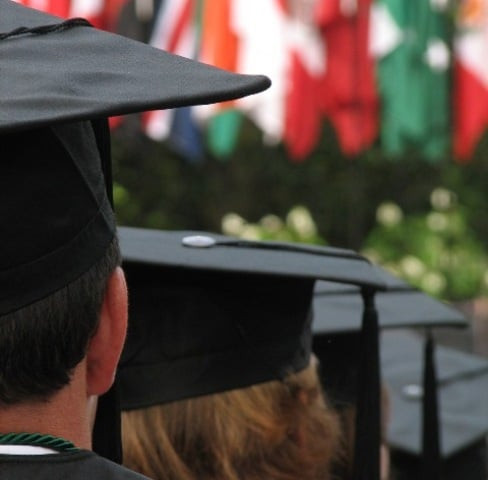The Higher Education Commission (HEC) of Pakistan has made significant contributions since its inception in 2002, however the strategies used by the commission have room for improvement. Statistics clearly show that the quantitative results of the HEC are plausible, with drastically increased university enrollment and a huge army of PhDs in the making on scholarships.
The quality of students on the other hand, does not seem too impressive. It is hard to challenge the fact that knowledge is not being produced in the country, and this raises a question:
What exactly do we want to achieve with this enormous number of graduate students if not the production of knowledge?
The direction taken by Pakistani universities is unproductive and dangerous, with the focus usually being on creating top of the line campuses and growing the student body. Should the priority be to increase the number of graduates or the quality of graduates? The answer simple; strike a balance and make the best use of the available resources. No one can deny the lack of resources and facilities in Pakistan, but is there anything that the HEC can do better with the available funds?
The United States has the highest number of top ranked research institutions in the world -this is a fact and an opportunity. In 2010, the number of Pakistani students in the US stood at 5,222, but the Institute of International Education reports that the number is decreasing.
India, on the other hand, had 103,260 students in the US during the same period with a constant rise in the numbers. The gap is many folds and constantly increasing because of the wrong, or missing, priorities of the Pakistan government and a well -thought higher education policy in India.
The purpose of the figures is not to draw a comparison between India and Pakistan in terms of higher education, but I want to bring the attention of the Pakistani authorities to a strategy that is doing wonders for India and can easily be adopted here within the means available.
India is a major source of international students in the US, with a 15 percent share and can be party explained by India’s booming economy that has enabled students to afford education abroad. However, a primary reason for this is the concept of education loans in India.
Any Indian student who secures admission in a well reputed American university and has a credit worthy cosigner can get education loans up to INR 2,000,000 (approximately US$ 40,000) from a state run bank through schemes facilitated by the Indian government. Some private banks in India offer up to INR 4,000,000 (approximately US$ 80,000).
The Indian government has gone to great lengths to implement this mechanism, which even allows lower interest rates to families with weaker financial strengths. Imagine how many students the HEC can fund if it chooses to pay for the interest on loans as opposed to fully funded scholarships.
The HEC offers thousands of graduate level scholarships, and most of these scholarships come with a bond that asks the scholar to return to the country after graduating and serve Pakistan for a given number of years. The ideas of giving scholarships and imposing obligations are both faulty for a number of reasons.
The HEC needs to devise a strategy to legislate the introduction of student loans through the banking system in Pakistan. This is a long term and sustainable plan that can help export human resources, which Pakistan has in abundance. Without any heavy investment, this could exponentially increase the number of opportunities for students in the country.
All that is required to put this plan to action is the will, not resources. Pakistan has an elaborate and successful banking structure which could benefit from a formalised loan system as well.
Student loans are popular in many other countries, including the United States. The model is such that it leads to a cycle where the money is not lost. Every coming year, the funds for providing loans would rise and an increasing number of students would be able to benefit from it.
We need not pamper our youth by providing them with fully funded scholarships; the government needs to help them become independent, self-sufficient and responsible stakeholders in Pakistan’s economy.
What our HEC can learn from India
I want our authorities to adopt a a strategy that is doing wonders for students in India.



COMMENTS
Comments are moderated and generally will be posted if they are on-topic and not abusive.
For more information, please see our Comments FAQ